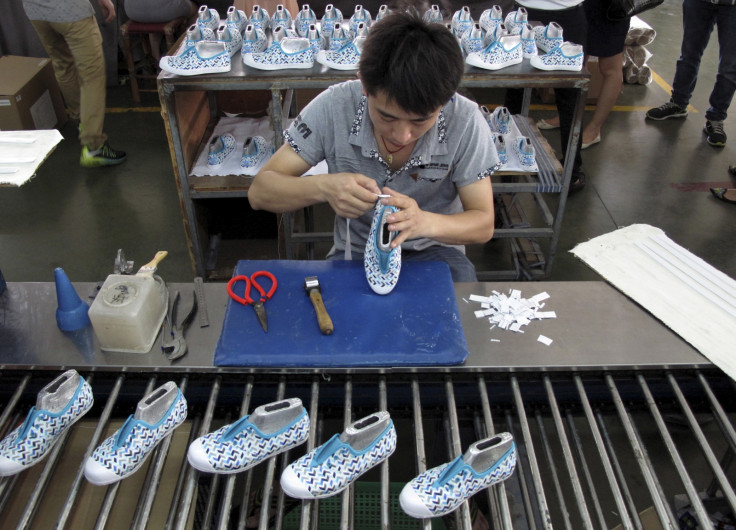Mainland China stocks plunge on gloomy PMI data

Asian shares fell sharply on 21 August after a private gauge of China's manufacturing activity fell to its lowest level in more than six years, deepening worries over the health of the world's second largest economy.
The preliminary Caixin/Markit manufacturing purchasing managers' index (PMI) came in at 47.1 in August, down from 47.8 in the previous month and the lowest reading since March 2009. A reading below 50 signals contraction.
The grim data sent mainland China shares spiralling down, with the benchmark Shanghai Composite index sliding 4.1% to 3,515.55 at mid-day.
"The poor number confirms what higher frequency data has been suggesting, that more weakness in the economy is likely," Chester Liaw, an economist at Forecast in Singapore, told the Guardian.
"The authorities claimed that there will be a rebound in demand in the second half but it appears that the opposite is happening.
"With first half GDP scraping the bottom of the barrel at 7%, the authorities will have a fight on their hands to ensure that the second half of the year comes in at even the same level," Liaw added.
Fears over China's weakening economy also wreaked havoc on Wall Street, where the Dow Jones, Nasdaq and S&P 500 indices all closed 2% lower.
"Due to uncertainties about where China's economy is going, what Beijing will do [in terms of monetary policy] and how much the impact it will have on the global market, anything related to China worries is sold," the Guardian quoted Daiwa Securities strategist Takuya Takahashi as saying.
Rest of Asia
Markets elsewhere in the region also took a beating, with the Nikkei index dipping 2.9% to 19,458.25 despite Japan's factory PMI advancing to 51.9 in August from 51.2 in July.
In Hong Kong, the Hang Seng index was down by 2.4% at 22,205.33 points.
Australian shares also extended their downward trend, with the S&P/ASX 200 shedding 1.6% to 5,202.40.
The benchmark index has retreated 8.8% since the start of August, the biggest monthly fall since the height of the global financial crisis in October 2008.
In South Korea, the Kospi was down by 2% at 1,876.45.
© Copyright IBTimes 2025. All rights reserved.


















